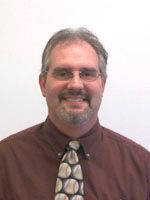
Paul Fidel, Jr., PhD
Department Chair, Oral and Craniofacial Biology
Adjunct Professor, Microbiology, Immunology & Parasitology
Director, Center of Excellence in Oral and Craniofacial Biology
Associate Dean for Research, LSU School of Dentistry
Department Chair, Oral and Craniofacial Biology
Adjunct Professor, Microbiology, Immunology & Parasitology
Director, Center of Excellence in Oral and Craniofacial Biology
Associate Dean for Research, LSU School of Dentistry
1100 Florida Avenue
LSUHSC School of Dentistry
New Orleans, LA 70119
Phone: (504) 941-8425
Fax: (504) 941-8319
pfidel@lsuhsc.edu
Degrees
PhD - 1988
University of Oklahoma
Bio
Dr. Fidel received his Bachelor of Science degree in Biology from Allegheny College in Pennsylvania in 1984. He then received his Master of Science and PhD degrees in Microbiology from the University of Oklahoma in 1987 and 1988, respectively. Dr. Fidel conducted postdoctoral training in the lab of Dov Boros in the Department of Immunology and Microbiology at Wayne State University School of Medicine in Detroit. He accepted a position of Assistant Professor in the Division of Infectious Diseases, Department of Internal Medicine, Wayne State University School of Medicine in 1990. Dr. Fidel came to LSUHSC in 1995 as an Associate Professor in the Department of Microbiology, Immunology, and Parasitology. He was promoted to Professor in 1999 and named the Carl Baldridge Research Professor and Director of the Center of Excellence in Oral and Craniofacial Biology, Associate Dean for Research in 2001.
The Fidel laboratories are currently funded under several sources from the National Institutes of Health and the Louisiana Board of Regents.
The laboratory at the medical school studies host defense and immunomodulation of vaginal candidiasis in both humans and animal models. The laboratory also studies adolescent vaginal immunology in relation to candidiasis and Sexually transmitted diseases (STDs). The research is focused on T cell-mediated immunity as well as innate mechanisms involving neutrophils and epithelial cell antifungal activity.
The laboratory at the dental school studies host response and immunomodulation against oral candidiasis, oral warts, and oral hairy leukoplakia in HIV-infected individuals. This research is also focused on T cell and epithelial cell immune mechanisms.
Dr. Fidel also oversees all research conducted at the dental school as Director of the Center or Excellence in Oral and Craniofacial Biology and Associate Dean of Research. Dr. Fidel recently was awarded a $10.7 million Center of Biomedical Research Excellence (COBRE) grant from the NIH (National Center for Research Resources-NCRR) for the dental school to develop promising junior faculty into independent researchers.
Research Interests
Studies in the Fidel laboratory at the dental school focus on host defense against mucosal Candida infections. One area of research involves the immunomodulation/immunopathogenesis of vaginal candidiasis in both humans and animal models. The research has recently revealed a paradigm shift away from adaptive immune deficiencies as a cause of infection to innate immune mechanisms playing a role in both susceptibility and resistance to infection. Accordingly, an unproductive acute inflammatory response by neutrophils is associated with symptomatic infection, while protection involves vaginal epithelial cell antifungal activity.
Another area of research involves host defense against oral candidiasis in HIV‐infected individuals. This research is focused on the protective role of CD8 T cells under reduced CD4 T cell conditions, tissue-associated factors in susceptibility to infection, and oral epithelial cell antifungal mechanisms. The lab recently also transitioned to study the oral microbiome in HIV disease through a funded Multiple PI R01 grant in collaboration with Ohio State University and Georgia Regents University. The grant aims to identify the effects of HIV and antiretroviral therapy on the oral microbiome, and the potential associations of the resulting microbiome alterations on oral candidiasis and oral warts.
The laboratory also collaborates with the Noverr laboratory on the role of mucosal biofilms in the pathogenesis of Candida infections. Infection models where biofilms are studied include vaginal candidiasis, denture stomatitis, and fungal/bacterial intra-abdominal infections.
Teaching Activities
Advanced Immunology
Techniques in Microbiology
Selected Publications
Lilly EA, Cameron JE, Shetty KV, Leigh JE, S. Hager, McNulty KM, Cheeks C, Hagensee M and Fidel Jr. PL, Lack of evidence for local immune reactivity in oral hairy leukoplakia and oral wart lesions., Oral Micro. Immunol. 20:154-162, 2005.
Barousse MM, Van Der Pol BJ, Fortenberry D, Orr D and Fidel Jr PL, Vaginal yeast colonization, prevalence of vaginitis, and associated local immunity in adolescents, Sex Trans Infect 80:48-53, 2004.
Fidel, Jr PL, Barousse MM, Espinosa T, Ficarra M, Sturtevant J, Martin DH, Quayle AJ and Dunlap K, A live intravaginal Candida challenge in humans reveals new hypothesis for the immunopathogenesis of vulvovaginal candidiasis, Infect Immune 72:2939-2946, 2004.
Fidel, Jr PL, History and new insights in to host defense against vaginal candidiasis., Trends Microbiol. 12:220-227, 2004.
Lilly EA, Hart D, Leigh JE, Hager S, McNulty KM, Mercante D and Fidel, Jr PL, Tissue-associated cytokine expression in HIV-positive persons with oropharyngeal candidiasis., J. Infect. Dis. 190:605-612, 2004.

 myLSUHSC
myLSUHSC